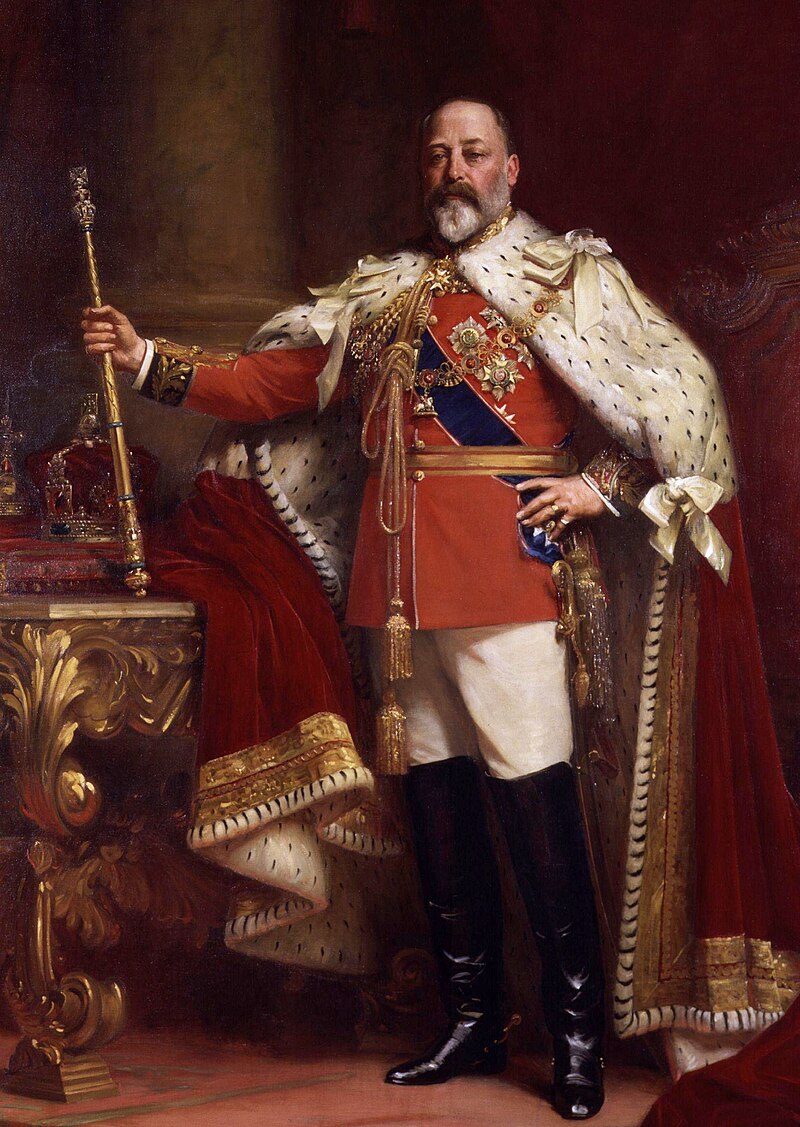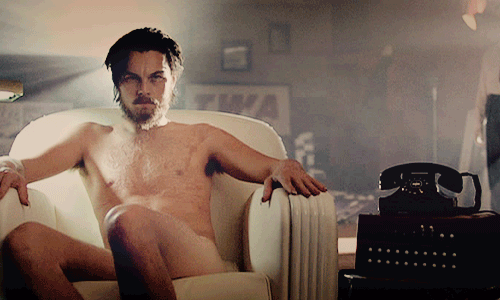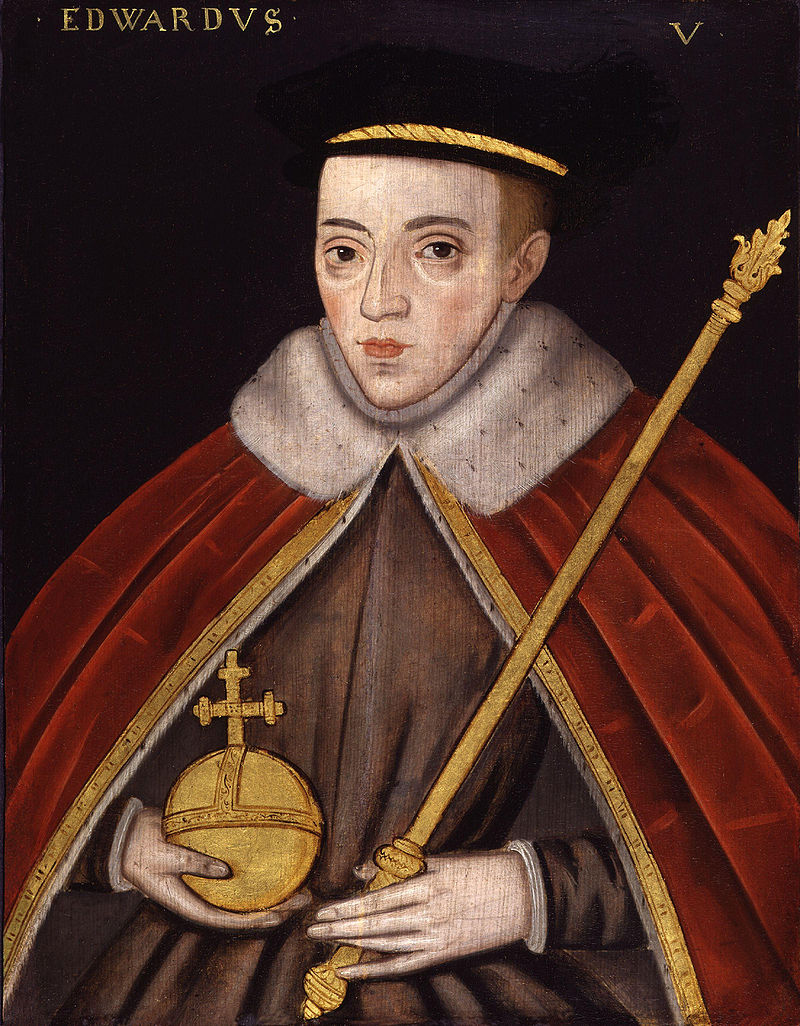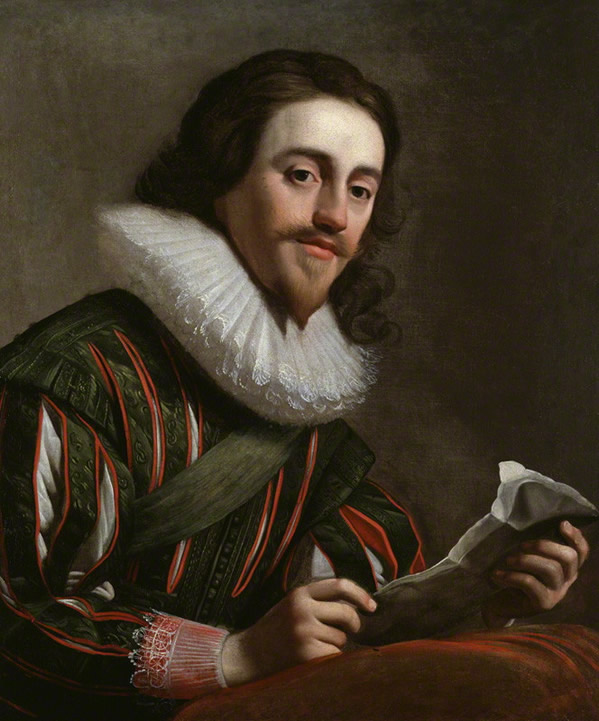No further explanation needed by this point. These are the greatest monarchs of English/British history. You could argue with the rankings, but then you’d be wrong.
 |
| Edward III pointing and laughing at dead Frenchmen |
14. Edward III
The third Edward in a row, Edward III was certainly better than his terrible dad (remember the poker up the ass guy from Part I?) but would never live up to the epic legacy of his crusading, Welsh and Scottish-ass kicking grandfather, Edward Longshanks. He took the throne at age 14 after the machinations of his mother Isabella and her paramour Roger Mortimer. And while for the first few years of his reign they were the ones in control, by the time he was 17, Edward III rose up and had Mortimer executed in order to begin ruling on his own. On the bad side during his reign – England was totally ravaged by the black plague. But you can’t really blame that on him, can you? The latter part of his long reign of 50 years (the second longest in this period only to Henry III) was full of political strife and military failures that began to taint his legacy. In his final years he played almost no role at all in the running of the country and his closest advisors, who did run the country, were constantly the subject of criticism and grievances from Parliament. But on the good side, Edward III presided over a reign that transformed England into one of the most formidable military powers in Europe. His rule featured vital developments in legislation and government, especially the English Parliament. He enjoyed amazing popularity throughout his reign, and even late in it (when there were many political and military failures) he himself was not blamed. He was a much better warrior than a statesman, which in that sense makes him like other relatively successful kings of the medieval era like Richard I. Despite the few struggles which might have undermined part of his rule, he gets major points for saving and turning around what otherwise almost became a doomed country under his father.
13. George V
Grandson to Victoria and Grandfather to Elizabeth II, George the V was a transitional king in a transitional age, but did a pretty good job at it considering that until he was 27 he pretty much never figured he was going to be king. But his older brother died and that put him in the line, so he had to change any plans on being a playboy that he might have had in order to be a great ruler (something he didn’t teach well enough to his dickhead son, Edward VIII). And King George V did pretty well for himself in an era that was not too kind to kings at all. He reigned during World War I (on the winning side, so points there), which did not bode well for two of his first cousins that who were also rulers - Kaiser Wilhelm II of Germany (his enemy in the war, on the losing side and who was forced to abdicate) and Czar Nicholas II of Russia (ruler of an Allied power, but also forced to abdicate and was executed by the Bolsheviks). Charles I of Austria was also forced to step down, ending the Hapsburg Dynasty of rule in Europe. Yeah, remember how England was scared of Hapsburg influence during the reign of Queen Bloody Mary like 360+ years before George V? Well, they were still around and had pretty much been around since Radbot, Count of Habsburg, who was born around the year 985. That is not a typo. The Hapsburgs had a 1000-year dynasty that just came to an end. People in Europe were just tired of damn monarchs. Even those on the winning side of the war. So while most countries at this time were going “let’s get rid of our kings,” George V managed to hang on… an accomplishment in itself. He was loved throughout his reign as a stoic, proper, upper class model of British-ness to aspire for, as well as a strong supporter of the Empire, which was still kicking it just fine during his reign.
12. Henry VII
He ruled for over 23 years, which is not too shabby. He also came to the throne by defeating the last King, Richard III, at the Battle of Bosworth Field. And if you get to become king by beating the last king in a battle, that’s always a much more awesome story to tell then just “my dad died.” It also doesn’t hurt his legacy that his victory in battle and a convenient political marriage brought a final end to the 30+ years of the Wars of the Roses, a series of little civil wars between two branches of the royal House of Plantagenet that divided the nation and included the execution of countless members of the nobility. He established the House of Tudor, leading to a comparative era of peace and stability, and also made great progress with collecting taxes (booo!). He’s not the best of the best and can’t crack the top 10, but he got shit done.
 |
| He wore panty hose. Deal with it. |
11. Charles II
Here is a guy who had his shit together, unlike his dipshit father Charles I or his dipshit brother James II. For over 11 years there was an Interregnum where England became a commonwealth with no monarch. Pretty much the only thing that stopped the British monarchy from ending for all time was the fact that Cromwell was such a boring, conservative tightass Puritan that he banned drinking, plays, and prostitution. Needless to say after 11 years of that shit you can see why the people of England started to get wistful about how
great things were back when they had a king. So they decided to invite young Charles Jr. back from exile, and it worked out pretty well for them. He successfully ruled for 36 years and while Tories and Whigs had radically different opinions of him at the time - the ultimate balance of his legacy sort of ends up with a description of him as a “lovable rogue.” He could be douchey, lazy, authoritarian, and would divert tax money to pay for his many mistresses - but he was also tolerant, considerate, excellent in a crisis, and was kind of just a loveably, merry rapscallion. I pretty much imagine him like
The Onion imagines Joe Biden. He was a patron of the arts and sciences including names that you should remember like Isaac Newton and Christopher Wren. In fact, he signed off on a lot of the reconstruction of London after the Great Fire of 1666 - so much of the modern London as we know it is due to him. One legend is that he liked to just go out into the city and hang out with the regular people. But his younger brother, James, warned him against it and said it was dangerous and that he could be assassinated. But then Charles replied back that nobody would want to kill him because then he (James) would become king. That’s just being boss. Remember Dave Chappelle’s
Killin' Them Softly standup special where he
joked that the first Black President could only avoid being assassinated by having a Mexican Vice President? Charles II essentially created that joke over 300 years earlier.
10. George VI
Top 10 time! George VI took a rocky situation that almost ended the monarchy and managed to smooth things out. The abdication crisis of 1936 occurred after his brother Edward VIII wanted to step down after less than a year as king. This was less than a generation after a number of the ruling monarchies of Europe (Romanovs, Hohenzollerns and Hapsburgs) were all overthrown. Their father, George V, was one of the few who held onto their throne after the great changes in the aftermath of World War I. With the new king stepping down and “republicanism” sweeping through Europe - maybe England didn’t need a king anymore! Public faith in the monarchy was near, if not at, an all-time low. But George VI did get the throne, and managed to turn things around. He had the misfortune to rule during World War II, but put on a brave face to the nation. He refused to flee to the countryside during the German bombing raids of London - and stayed in Buckingham Palace where he and his wife were
almost killed in a bombing raid. Although initially not a supporter of Winston Churchill becoming Prime Minister, through the war they formed a close bond and partnership that is described as the closest Monarch-Prime Minister relationship in history. They met privately every Tuesday to discuss the war, no matter what. The king showed courage, strength and leadership that helped prevent the UK from becoming demoralized during their darkest hours of the Blitz. And while Americans make a lot of jokes about going over there and saving the UK’s ass, the US really couldn’t have won the war without them (and without the filthy damn Russians).
 |
| Wait... was Peggy Carter based on the Queen?! |
9. Elizabeth II
Look, it’s really hard to judge a sitting monarch. Not only is her reign not over yet and legacy still not complete, but it’s hard for anyone to distance themselves from their contemporaries to make a fair judgment. But, you know, I have to rank her somewhere. First of all, there is a lot of great stuff that Elizabeth II has going for her. She’s the longest reigning ruler in British history and she’s widely beloved and popular despite the fact that the monarchy has become a figurehead role. Plus she’s been able to keep that popularity going despite reigning in turbulent times that have included personal royal family drama, the vast social changes of the civil rights era, as well as a number of conflicts including the Falklands War, the continued “low-level” ethno-national war known as the “Troubles” in Northern Ireland, and several conflicts in the Middle East. But on the flip side, the British Empire is not what it used to be. While that fall from power began before her time and represents a greater trend that ended the Colonial era writ-large, add that to the fact that she’s really just a figurehead with no authority and can you really say she’s the best of the best? No. But father and daughter – George VI and Elizabeth – are ranked next to each other because their legacies are entwined in a lot of ways. Elizabeth’s rule hasn’t been much of a departure from that of her father’s (and both are largely just continuations on Victoria’s legacy – but that’s to be discussed later).
8. James I
As much as Edward I tried to conquer Scotland, in the end it was actually Scotland that conquered England. When Elizabeth I died without an heir, it was James - the son of her arch nemesis, Mary Queen of Scots – who was next in line for the British throne. So with England and Scotland uniting under one crown (“The Union of the Crowns”) with one monarch is sort of the beginning of what would indeed become a “United Kingdom” (although technically that term applies to the union with the Kingdom of Ireland in 1801). If you count his time as the ruler of Scotland (as James VI) in addition to his time as James I of England, then he had a reign of almost 58 years. The longest ever for a male who didn’t fuck up and lose the American colonies. Instead, he settled the American colonies! It’s called
JAMEStown, duh. In addition to that, the British Empire was in full swing during James’ reign, with trade through the British East India Company expanding exponentially and making England super rich. Much of what we think as classics from the “Golden Age” of Elizabethan arts were actually from James’ reign. Arguably, Shakespeare was more famous and important in the era of James than he was during Elizabeth’s time. However, James' rule was a time of peace, proving that being an awesome warmonger isn’t the only qualification to make you rank high on my list (although I do have some awesome warmongers). Elizabeth I and James I provided a back-to-back period (almost 90 years) of stability and growing influence that essentially transformed England from just another European kingdom into an elite global power in charge of an Empire that would remain a dominant, hegemonic force well into the 20th Century.
 |
During the reign of Henry II, these orange and yellow
parts of France had a different name: "England." |
7. Henry II
This entry is going to be long, because I really feel like this might be a controversial choice for such a high ranking, and I need to defend it thoroughly. The reign of Henry Curtmantle doesn’t exactly inspire love from many, and I could imagine that a lot of people might rank him pretty low. Let’s get some of the initial stuff out of the way first - yes. If you know anything about Henry II (although you
probably don’t), it’s likely from
Lion in Winter, or
Becket, or some other history dealing with St. Thomas Becket. As if Henry II was a supporting actor to Becket in his own reign. Did Henry II actually say “Will no one rid me of this troublesome priest?” and sort of quasi order the murder of the Archbishop of Canterbury while he was in the middle of his prayers at his own Cathedral? I dunno. Maybe! And no, he wasn’t the father of the year, as just about every single one of his sons rebelled against him or betrayed him at a certain time (including Richard I and John). He wasn’t husband of the year either, as his wife Eleanor of Aquitaine helped participate in (and egged on) almost all of those rebellions from his sons… and Henry imprisoned her for 16 years for it. Henry and Eleanor were like ultimate medieval toxic/destructive couple. They were the Kurt and Courtney, the Bonny and Clyde, the Sid and Nancy, the Chris and Rhianna of their day. They were constantly feuding with one another, but also had like a million children together - so there must have been lots of hot breakup sex mixed in. The reason behind the feuding with his wife and children was likely due to the same reason he bumped heads with Becket and the Church - this dude was King, he was in control, and he didn’t want to give up control to anyone else. Becket wanted Henry to stay out of ecclesiastical trials, but Henry wanted his royal justices to be involved. Eleanor and the kids wanted to be given some roles and responsibilities in the fairly large Angevin Empire that, in addition to England, also included huge chunks of France. Henry didn’t want to give up any of his power. That’s just how he was. These toxic relationships led to his own downfall and death while he was warring with his own son Richard out in France. But despite his own self-caused downfall - Henry II has a lot of a legacy to be proud of. Yes, Henry II was a micromanager who wanted to do everything himself - but when he did do everything himself,
it got done right. If you’re an autocrat that sucks at your job, you’re just the worst. Henry II was an autocrat that took a fragile English society that had just gone through 18 years of civil war and put things back right. Less than 100 years into the Norman Conquest, there was still distrust and cultural clashes between the Normans and Anglo-Saxons. But Henry smoothed things over by continuing and expanding upon his grandfather’s (Henry I) policies of conciliation, two-way assimilation, and legal reform. The gradual changes in law which he enacted essentially formed and created the English “Common Law,” which is still the basis of the legal systems used in England, the United States, and much of the world to this day. Yes, the American legal system in 2016 owes nearly as much (if not more) to Henry II as it does to the Constitution, Magna Carta, and other documents. Militarily, he did pretty good jobs of keeping his possessions on the continent as well as expanding the Norman Conquest into Ireland and Wales - locations that earlier generations of English kings were never able to successfully conquer. Henry simply got shit done and increased the power of England in order to prevent another period of crisis and succession drama like what happened in The Anarchy. Of course, irony had to intervene so that Henry’s own overbearing will caused family discord which, in turn, led to the exact chaos and succession questions with his kids that he wanted to avoid in the first place. If you Google “greatest kings of England,” hardly anyone will put Henry II near the top.
But they’re all wrong. Henry II’s only flaw was that he was too damn good for his own good. Who can hate him? Henry VIII executed two of his wives with little reason at all. Henry II’s wife openly rebelled against him like four times, he just laughed it off and they banged it out almost every time.
6. William I (the Conqueror)
This dude is nicknamed “the Conqueror,” which is a pretty succinct way to say that he totally kicked ass and is deserving of a pretty high rank. He came across the channel from Normandy with 5000 knights and conquered a country of 1.5 million. England changed so much via his conquest that 1066 and the Battle of Hastings is a key point in British history. I’m disregarding any king of England from before 1066 on this list because William sort of establishes a new dynasty. Even a lot of English sources essentially ignore kings before William I and start really counting monarchs with the Norman Conquest. Which really sucks because I could have totally thought of some charming things to say about Edward the Confessor. During William’s reign he easily put down all the rebellions against him, greatly expanded the motte and castle defense system throughout the country, and even did that Domesday census that gives us an amazing and unprecedented understanding of the people, land ownership, and religious institutions which existed at the end of the 11th century. Even if he only did it so he could tax all of those poor bastards. Want to talk about a legacy? Despite all the twists and turns with Germans and other people being put on the throne for a while, his blood descendants still hold the throne to this day after a thousand years (William the Conqueror is Queen Elizabeth II’s 22nd Great-Grandfather). So good work Billy.
 |
| No caption or explanation required. |
5. Richard I (the Lionheart)
Richard I is definitely one of the most famous and well-known English kings, so his legacy is already secure in the hearts and minds of the people. How much that has to do with
Robin Hood stories I’m not sure, but no matter what he’ll always be famous as that brave Crusader king. That being said, there is a lot of hate out there with people trying to bring Richard down and argue that he wasn’t as great as the legends make him out to be.
He didn’t rule that long. The short time he did rule, he was barely actually in England because he was always out in France or on the Crusade. He didn’t even speak English because he was totally just a Frenchman from Aquitaine. He taxed the country insanely. There was horrible persecution of Jews during his reign. He fired large numbers of people from royal positions and essentially demanded bribes to re-fill them. His crusading jeopardized stability back at home and England’s territorial possessions in France. Yes, these things are all technically true. But Richard I was a warrior king during an era when kings were supposed to be warriors and he kicked ass. He was a legend in his own time and his enemies respected, feared, and fled from him. He wasn’t a bigot who viewed Saladin or the Muslims as an inferior race – but instead he treated with them and negotiated with Saladin’s forces like they were equals. Hating on Richard for how little time he spent on the British Isle is kind of a bad thing to do, because 1) he was kidnapped and held ransom by the Holy Roman Emperor during a substantial part of his reign, so you can’t really blame that on him, 2) England / the Angevin Empire at the time was more than just the isle of Britain so his time in what we’d call “France” was actually time well-spent trying to secure and expand his empire, and 3) he was on a damn Crusade, kicking ass and coming within 12 miles of taking Jerusalem (only to be undermined by a lack of support from his lousy French and German Crusader allies). His father, Henry II, was (as we saw) a great administrator with the common law and all – which made him a great king in a different sort of way. But that administration crap just wasn’t Richy’s style. He had advisors and councilors who could do that admin shit. The Lionheart just wanted to fight and kill and he did that better than almost any other king. Some people call the Third Crusade a “failure” since the Christians didn’t take Jerusalem. But it was more complicated than that. With all the feuding and turmoil between fellow Christian forces, the Crusade was actually surprisingly more successful than it should have been – due almost entirely to Richard I’s dynamic leadership. Part of that was Richard’s
gargantuan ballsack when going into battle, but the more important part of it was Richard’s understanding of long-term battle logistics and supply lines. Striking Muslim supply caravans was just important to him as glorious bloody battle. There were battles that Richard unpopularly refused to take up because he understood that, even if he won, the Christian forces in the Crusader States would never be able to supply or hold onto them. Others encouraged him to go into un-winnable battles saying, “we’ll win the battle because God is on our side,” but Richard trusted in the facts on the ground, and retreated when he knew they could do no more. The end result of the war was really a sort of compromise where Muslims still controlled Jerusalem but recognized its importance to Christians and gave them the right to peaceably visit. Which is really a very 21st century peace deal for a 12th century war. In the end, Richard died like he lived, taking a crossbow bolt to the shoulder at a siege against the French. Richard I was just straight-up badass.
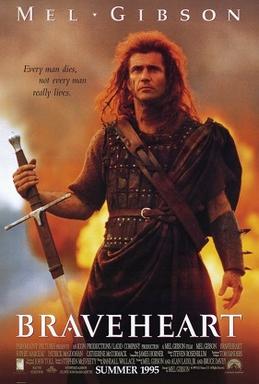 |
Pictured above: A rebellious terrorist.
King Edward I did not negotiate with
terrorists! |
4. Edward I
Ah, Longshanks. Finally a high quality Edward who absolutely rocked it. As with his incompetent son, Edward II, you’re likely most familiar with Longshanks as the horrible villain in
Braveheart. You know, that evil Englishman who terrorized the Scots by having his lords claim the right of
Primae Noctis on women on their marriage night, scoffed when the Princess donated to the poor because he hated poor people, threw random people out of windows for fun, and was altogether just murderous and ruthless.
All bullshit. Well, I mean he was a little ruthless to the the Scots, but then again the situation wasn’t as good vs. evil as Mel Gibson would want us to think. Yes, he waged war against Scotland, but honestly the battles were less about freedom and more like a Game of Thrones between different Scottish nobles, including some who kinda were either loyal or disloyal to Edward depending on the prevailing winds or what advantage it gave them. The regular peasants weren’t any more or less free under any ruler - be the last name Plantagenet, Baliol, Bruce, or any other. Edward I actually became king when he was off on the Crusades (where he actually stacked up a load of victories, including capturing Nazareth for the Christians), and would go on to rule for almost 35 years. In his time helped solidify the Parliament, set the country back on course after the somewhat middling rule of his father Henry III (ranked 19 here - not horrible, nor awesome), finally conquered and colonized Wales (even the most successful kings before him only had minor victories in the Welch Marchlands), was involved in complex war and diplomacy on the main European continent, paid close attention to the administration of the country and replaced royal officials who had been abusing powers, promoted strong legal codes (he’s been called the “English Justinian”), negotiated with merchants to secure duties that would fund his extensive wars, and yes kicked enough Scottish butt to be nicknamed “The Hammer of the Scots.” Was he perfect? No, of course not. He was famous for being impatient and having a bad temper, although it was overplayed by Patrick McGoohan. Plus, he was absolutely a dick to the Jews in England, although I challenge you to find medieval kings who weren’t. But the Coronation Chair at Westminster Abbey that every King or Queen is crowned on is technically “King Edward’s Chair.” He even had a little slat on the bottom of it to fit the Stone of Destiny (the rock on which all Scottish kings were crowned) as a giant middle finger to the Scots just to prove that the King of England was also now the King of Scotland. A pretty solid legacy.
3. Victoria
Victoria ruled from 1837 to 1901, which was the longest rule in British history until QE2 came along. In 1867 she also adopted the extremely modest title of “Empress of India.” Why? Because that’s just something you can do when you rule for over 60 years and, during your reign, your empire expands to make up one quarter of the earth's land. Let me repeat that to you again. ONE. QUARTER. OF. THE. EARTH. Although by this time the United Kingdom was a constitutional monarchy, Victoria still influenced things and guided the nation’s policy in more subtle ways. Behind the scenes she worked closely to steer ministerial appointments and other matters, something that wasn’t even publicly known until after she died and her personal correspondences were released. But just because she worked behind the scenes a lot doesn’t mean she wasn’t a major public figure. She herself became the physical personification of the morality, codes, and dress of her era, which is evidenced by the approximately six billion costume dramas that are set in the
Victorian era. She became universally beloved (well okay, probably not in India), and if English people are ever wishing things would go back to like in “the good old days” they’re probably thinking of this era. But let’s just talk about how big of a turnaround Victoria’s reign was for England. She came to the throne after over a century of absolutely mediocre Hanoverian rule (other than George III, who graduated from “mediocre” to “mixed results” with his rule). She turned the British throne around through her empire and the functions and reputation of the British throne today are absolutely based on her reign. No British/English monarch has ever had such a cultural impact – both within their own time period, as well as a lasting impact for the next century plus after. The 20th century monarchs who were able to make the top 14 list (George V, George VI, and Elizabeth II) only were able to climb up so high because Victoria set the model of the “modern” British monarch for them - and they followed the model.
 |
Nice fleet you have there, Philip II. It would be a shame if
anything happened to it. |
2. Elizabeth I
In 1588, the supposedly “invincible”
Grande y Felicísima Armada was heading for England, and things were getting pretty grim. The ultimate goal of the Spanish was to dethrone Elizabeth, end the Tudor dynasty, and wipe out Protestantism in England so everyone could be Catholic again like the good old days before that sociopath Henry VIII. But the Spanish Armada got its ass kicked and that alone seems like enough to assure Elizabeth’s legacy. Although she wasn’t a warrior queen like some kings were warrior kings - she came pretty close. Even with the Spanish fleet pretty much defeated at the Battle of the Gravelines, the threat of a Spanish invasion was still real. Elizabeth herself went out to the frontlines at Tilbury where the English troops were preparing their defenses for an invasion and gave a stirring speech. The exact words of it are debated and there are multiple versions, but it’s generally agreed that she pulled the “strong, independent woman” card and talked about how even though she was “just” a woman she was really a king too with the heart of a king, and she didn’t need to marry no foreign king and get a man to secure her throne - she owned that shit. She also said stuff about loving and trusting her people, faith in God, honor, obedience, and how they were totally going to win.
And you know what? The Spanish just backed the fuck off and left. To this day, this speech and the entire reign of Elizabeth I sort of symbolizes England’s independence, sovereignty, self-reliance, and its courage to stand up to foreign invaders. Beyond 1588, she had a pretty successful reign where she was frequently able to overcome attempted plots and invasions, helped establish and define the national church, expanded trade, sent Raleigh and Drake around to colonize the world (and thus expand trade even more), promoted the arts, and got the love of her subjects. You know your 44-year reign is pretty awesome when they just go ahead and call it “The Golden Age.” Oh, and did I mention Shakespeare? Because Shakespeare. Queen Elizabeth I is part of the British national mythology, much more than my #1 pick. But I’m not ranking contributions to national mythology… I’m ranking
awesome.
 |
Sir Kenneth Branagh covered in dirt and blood is essentially all you need to
see in order to understand the essence of England's greatest monarch, Henry V. |
1. Henry V
Henry V ruled for less than 10 years and died at age 36, but in that short-ish time on Earth he was epic enough to become a central character in
three Shakespeare plays. Remember when I was talking about the Percy Rebellion during the reign of his father, Henry IV? Henry V fought in that in July 1403. Henry V was born in August 1386. He was 16. And by “fought in that,” I mean, “he was commander of an entire army that he led into Wales, leading it to victory at the Battle of Shrewsbury.”
But he was the king’s son and probably just symbolically in the battle while commanding his army from the rear, right? No. He was in the front of it and got shot in the face with an arrow. When his father fell ill a few years later, Henry V started running the country like he was the new king, rather than just being a substitute teacher, and he did it pretty damn well (although when his father recovered, the old man rolled some of Henry’s decisions back). When his father finally died, Henry V turned his eye to what he always wanted to turn it to - France. A military genius, he crossed the channel and attacked the supposedly impregnable fortress at Harfleur and pregnated it. Less than a month later, Henry V’s brilliant victory at the Battle of Agincourt (the cherry atop the ice cream of the 100 Years War) and Henry’s later battles almost ended France. His complete ass-kicking in France led to a situation where the French king (Charles VI) pretty much just gave up, and begged for peace. In the Treaty of Troyes, Charles VI agreed that his daughter should just marry Henry V, that Henry V was now officially the regent of France, Henry V was also now heir to the French throne (skipping Charles VI’s kids), and that Henry V’s kids with his daughter would become the future heirs to the French throne after Henry, as well as to the English throne.
Just think about it. He came
this close to making France a territory of England
forever. France would just be one of those weird names from the past like “Prussia” or “Zanzibar” that you hear in history class, but know nothing about. You’d tell your friend, “Hey, I’m visiting Paris this weekend,” and they’d reply, “Oh, have fun in England. I hear it’s so nice there this time of year. Speaking of nice, Nice is also a great part of England.” Then you’d reply back, “Yeah, but not as good as Marseille. I love those English wines from Provence.” Unfortunately, the fun couldn’t last forever. Henry V suddenly
died of dysentery and his heir Henry VI was just absolute shit - he ranked #37 on my list, the 6th worst. The French quickly reneged on the treaty after Henry V’s death and with a weak, terrible, new king England was unable to hold onto the French crown. I mean even a
little French girl was able to beat him. If Henry V had lived just a little longer, the entire course of history would be different. Can you imagine what would have happened if the French sent Joan up against Henry V, the unbeatable tactician and field commander? She wouldn’t be a canonized legend. She’s be a little odd footnote in history. “Hey, remember that story about the little traitorous English girl named Joan of Arc who tried to lead an army and rebelled against her English king, Henry V? Wow that was silly! Of course she was crushed in five minutes, she was a 13 year old girl!” Alas, we’ll never know. Other stuff that Henry V did beyond the awesome battle stuff? Well, Henry V was the first king of England to use English as his primary language for speaking and writing and made it the official language in courts, Parliament, and all government matters (350 years after the Norman Conquest, French was still the official language of England - until Henry V). This really made Henry V, in a lot of ways, the first
English English king. He also put down the Southampton Plot, ran the treasury pretty damn well, and maintained good relations with the Church. But yeah, mainly he was the most brilliant and successful warrior king in English history.
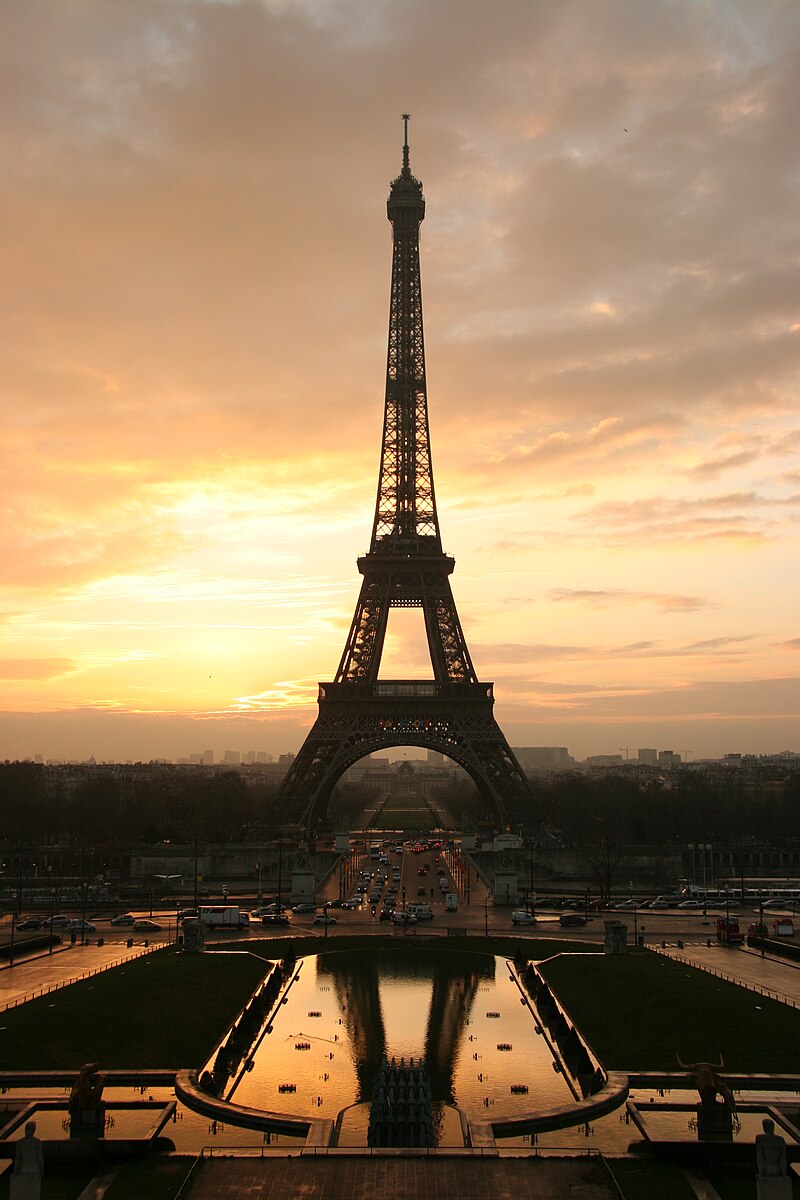 |
| England. |
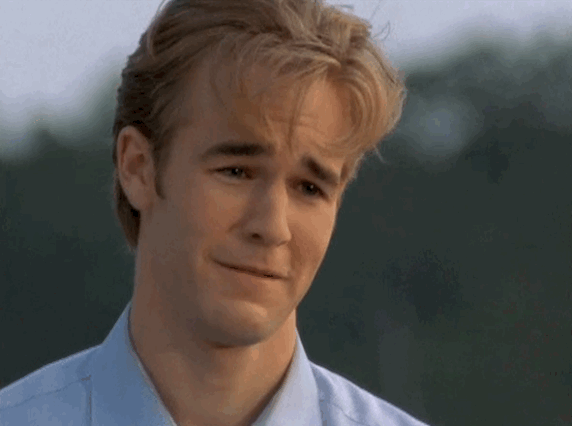







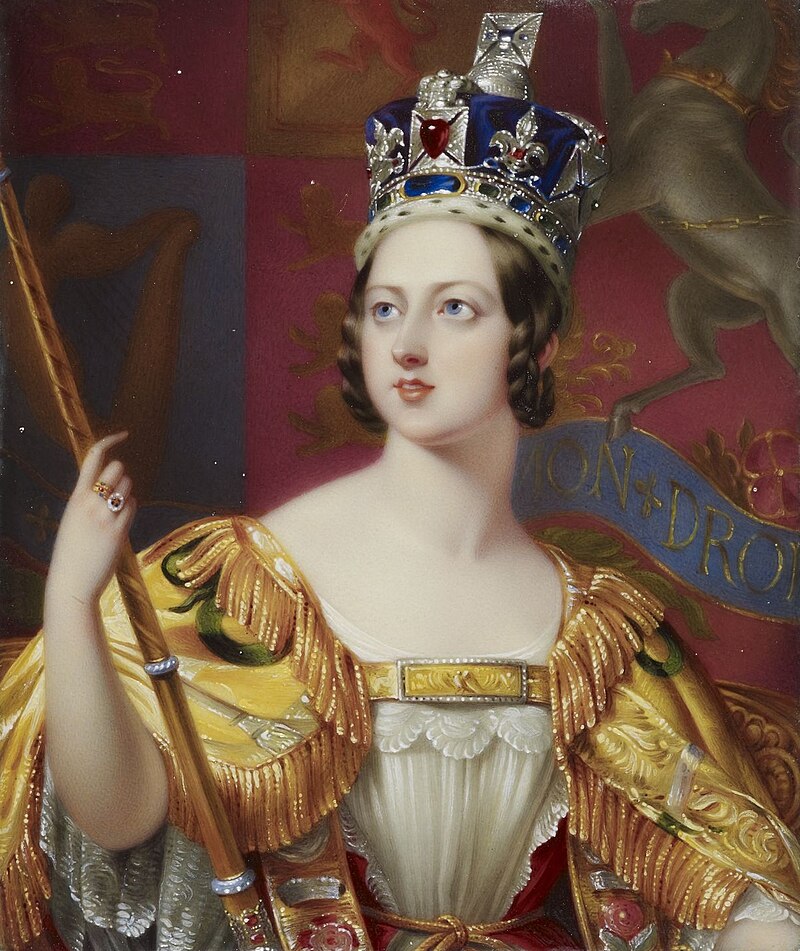



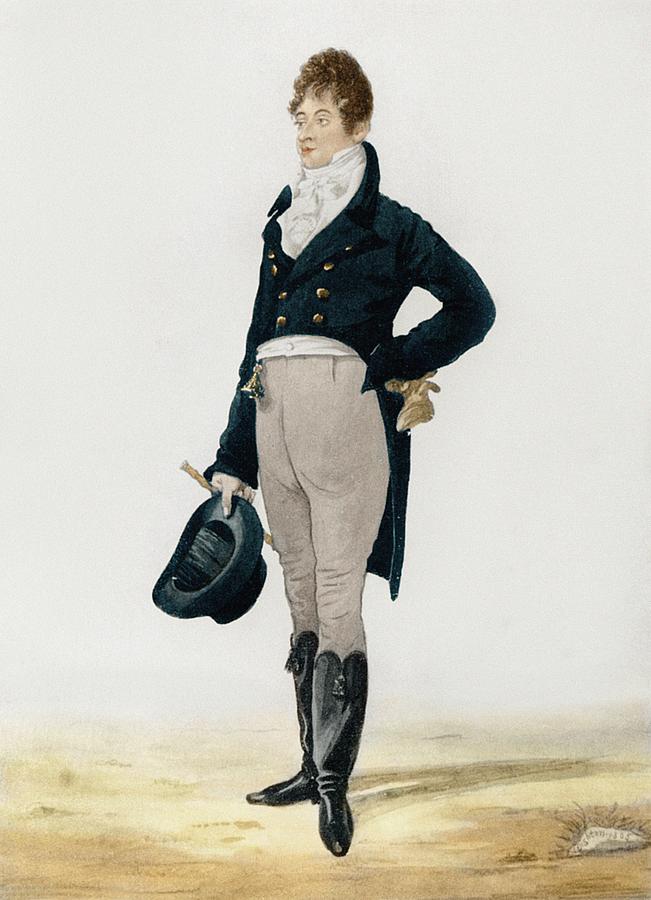

.jpg)
